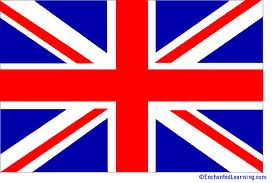
Jeffrey D. Boehm
Nation/Culture(s). The UK consists of England, Wales, Scotland and Northern Ireland. An outsider may think that the society is homogenous, it being a small island country. However, there are many subcultures that permeate the cultural landscape. This is mostly evident in the accents and attitudes that can only be learned by interacting with the people of the various regions.
Music. Features, Genres (Art, Folk/Traditional, Popular)
Although there are varying subcultures throughout the UK, the music traditions are fairly similar; rooted in either the western classical tradition or folk music traditions that go back centuries. The people of the UK love music. It is not uncommon to hear workmen, crowds at rugby and football (soccer) games, and pub-goers breaking out in song. There are many local singing groups, particularly the Male Voice Choruses in Wales. Western classical music is in abundance, with many famous orchestras such as the London Symphony, the BBC Orchestras, and many others leading the way in both traditional programming and that of new music. The Brass Band movement is another fascinating part of the musical culture of the UK. Of course, one must not forget the pipers from Scotland!
Notable Musicians. (listed are a few of the author's favorites)
Classical
Alison Balsom
Bry Terfel
Ian Bostridge
Andrew Lloyd Webber
Julian Lloyd Webber
Gustav Holst
Ralph Vaughn Williams
Classical Groups
London Symphony
Academy of St. Martin-in-the-Fields
Philip Jones/London Brass Ensemble
Brass Bands
Pop
Beatles
Pink Floyd
Led Zeppelin
Imogen Heap.
Music in Higher Education. Higher Education in the UK is a bit different than in many other countries. Students attend university for three years and tend to only take courses in their major (as opposed to the varied curriculum of a liberal arts college/university). Those wishing to obtain a teaching license will then attend a fourth year of school that includes practical and academic teacher training. Like many other countries, our institutions of higher learning consist of both conservatories and regular universities. Students may obtain only a certificate at conservatory if they wish.
Music in Schools. All schools in the UK, with the exception of private schools, are required to follow the National Curriculum. This means that they must cover the following subjects: English, maths, science, design & technology, history, geography, art & design, music, physical education (PE), and information & communication technology (ICT).
Grade levels are marked as beginning in Year 1, which is considered Kindergarten in other countries such as the United States. During years 1- 9, students will study all of the subjects listed above. In years 10-11, most will take national exams (known as the GCSE’s) in three core subjects: English, maths, and science; as well as the three foundation subjects: ICT, PE and citizenship. Schools must also offer at least one subject from the remaining four areas, music being one of those possibilities under the “Arts” area.
Universities use the marks of the levels achieved in the GCSE’s (or other equivalent qualifications) as part of the criteria for admission. When students reach year 12, they may decide to attend one of three options: Bachelor’s of Technology (B-tech), College, or A-Levels. B-tech is performance/vocationally driven and has very little academic work. College is also vocational, but will have grounding in theory and history. A-Level is university preparation.
Recommendations for Listening.
Alison Balsom. Sound the Trumpet. EMI
London Brass. Modern Times (http://londonbrass.net/buy-cds/)
London Symphony Orchestra (1904-2004): The Centennial Set [Box Set]. Andante
Birmingham Contemporary Music Group. Philip Cashian: Dark Inventions. NMC
Simon Rattle. Simon Rattle: British Music. EMI
Blaenavon Male Voice Chorus. Adiemus. http://www.youtube.com/watch?v=Ofxijk12kiw
Recommendations for Viewing.
Cantorian Colin Jones. “Bring Him Home” from Les Miserable. https://www.youtube.com/watch?v=8hWUN5LLzeo
Largest Ever Male Voice Choir I Wales. http://www.youtube.com/watch?v=9nFE3VSBWG0
The Black Watch & the Scots Gaurds. Amazing Grace. https://www.youtube.com/watch?v=Papxoz_nvGE
Grimethorpe Colliery Band. Lucern Song and Dance of the Tumblers. https://www.youtube.com/watch?v=XHCAD_bDkjo
Recommendations for Reading.
Blood & Thunder: Inside an Ulster Protestant Band. MacDonald, D. (2010).Cork: Mercier Press
The Modern Brass Band: From the 1930s to the New Millennium. Newsome, R. (2006). Aldershot, UK: Ashgate Publishing Limited
BBC Music Magazine.
The British Invasion: The Music, the Times, the Era. Miles, B. (2009). New York: Sterling Publishing
Cardiff Arms Park Male Choir site. http://www.cardiffarmsparkmalechoir.com
Bristol Arts Council site. http://www.britishcouncil.org/arts-music

